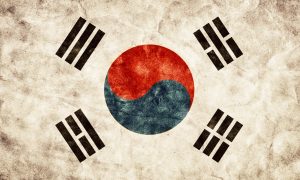On the morning of December 8, the leader of the ruling People Power Party (PPP), Han Dong-hoon, and South Korean Prime Minister Han Duck-soo made a joint address at the headquarters of the PPP.
During the address, Han Dong-hoon said he will stabilize the country and minimize the confusion that people may have in the future through “the ordered early departure” of South Korean President Yoon Suk-yeol. Yoon has implied that he would follow the PPP’s plan to stabilize the country, and Han clearly reiterated that the president’s early departure is inevitable due to the illegitimate declaration of martial law he made on December 3.
However, the PPP leader did not specify a timeline for ending Yoon’s term (which is scheduled to end in May 2027), or how he would work with the “Yoon” government to govern the country. He said more details of his plan will come in the future, but there are significant concerns over whether he can set a deadline for Yoon’s departure as the president has not made any remarks implying his intention to resign.
The PPP intentionally sabotaged an opportunity to force Yoon from office on December 7, when 105 of the 108 party members refused to appear for a vote on the opposition’s impeachment bill. The bill died due to the lack of a quorum.
Under the announcement made by Han Dong-hoon and Han Duck-soo the next day, Yoon should not exercise any of his presidential powers and authorities until he leaves office, but it is questionable whether he will comply.
Also, it is questionable whether it is legally possible for either the prime minister or the leader of the ruling party to exercise the presidential authorities and powers when the president is still in office. According to South Korea’s Constitution, the prime minister would become the acting president once Yoon resigns or is impeached by the Constitutional Court but it is unconstitutional for the prime minister to exercise presidential authorities and powers on behalf of a sitting president. Han, the leader of the PPP, has no authority to exercise presidential powers under any circumstances.
Prime Minister Han said he would manage the situation while making sincere apologies to the people. Reassuring that the government is taking care of security, foreign affairs, and economy, he also asked the opposition party to pass the government’s budget bill in a timely manner so as to help revive the stagnant economy. He promised to closely work with the National Assembly, which is controlled by the main opposition Democratic Party. However, his promise to closely work with the National Assembly may not be kept if he (or Yoon) vetoes the DP’s downsized budget bill when it is passed.
The December 8 address seems to have been designed to show South Koreans that now the leader of the PPP and the prime minister are taking charge of statesmanship. However, Lee Jae-myung, the leader of the DP, belittled their address, calling it a “second insurrection.” He said that Yoon’s immediate departure is what the South Korean people demand, reiterating his party’s stance that the opposition will keep proposing bills calling for impeaching Yoon unless he resigns.
According to the DP, it will likely propose an impeachment bill again on December 14. However, the bill cannot pass without at least eight PPP lawmakers’ votes, as it needs the support of two-thirds of the 300-seat National Assembly. On December 7, the PPP neutralized the DP’s first try at impeaching Yoon when nearly all the party’s lawmakers left the plenary chamber after they vetoed a bill calling for a special prosecutor to investigate the allegations of Yoon’s wife over stock manipulation.
According to a poll conducted by Gallup Korea, Yoon’s approval rating has plummeted to 11 percent. The poll also found that 74 percent of South Koreans support impeaching Yoon.
Despite the overwhelming public support for impeachment, the PPP has clearly stated that it will not support such a move. Instead, the party appears to be scrambling to find an alternative arrangement that would satisfy the public’s demands without triggering a snap presidential election that the opposition – and specially Lee Jae-myung – would be heavily favored to win.
Meanwhile, the Justice Ministry said on December 9 that it has forbidden Yoon from leaving the country per the requests made by the investigation agencies. Amid allegations of insurrection, Yoon is the first sitting president who has been forbidden to leave the country in South Korea’s history.

































